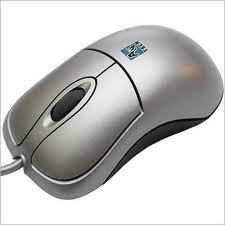Beating Stigmas with the Click of Your Mouse
Medical Pharmaceutical Translations • Apr 17, 2010 12:00:00 AM

According to the American Heritage dictionary (third edition), a stigma is defined as: a mark or token of infamy, disgrace, or reproach; a mark or characteristic indicative of a history of a disease or abnormality. A stigma is something that can affect a person’s physical and mental well-being. It can also prevent someone from acknowledging a health problem or seeking out health care.
The word for stigma changes with the language, but the meaning is universal. The idea of reproaching or denigrating someone different from the norm crosses country borders and saturates cultures.
Because they often create uncomfortable social situations, people with neurological disorders receive a large amount of stigmatization. Misconceptions that their tics, behaviors or seizures are socially unacceptable, contagious or brought on by “evil spirits” perpetuate stereotypes that people with neurological dysfunctions are a danger to others or have less social value than healthy individuals. This is commonplace in many societies.
Oftentimes these patients feel rejected by neighbors, communities and places of employment. Feelings of unease, not fitting in, loss of confidence and self-doubt permeate their being and lead to self-deprecation and alienation from society. Frequently, diagnosis or treatment is delayed to avoid the resulting negative social consequences. Isolation, depression and poor health are the end products.
Societies able to access the internet may find help through social media. According to June Dawson, managing director of Digitas Health in London, “While the Internet has been changing the nature of the patient/physician relationship for years, social media is starting to play an interesting role in the delivery of emotional support, with people suffering chronic and sometimes stigmatized conditions.”
“By enabling people to share experiences and ask and get those honest answers to questions about their condition, social media is removing much of the mystery behind medical decisions and is a powerful source in helping to make the industry more democratic and humane for patients.”
Digitas Health surveyed 1,000 physicians and consumers in the United States and Europe on their use of social media as it relates to healthcare and found doctors indicated patients with chronic illnesses seem to benefit most from social media platforms. While the preference is still for in-person support groups a little more than online support groups (89% to 74%), online support groups make it possible for the more isolated patient populations suffering from psychiatric illnesses and degenerative neurological diseases to still receive support.
Humane is the key word here. No one should be isolated. Stigmas cross borders and cultures but they don’t have to prevail. Acknowledging a disorder and seeking help whether in person or online is a key step to maintaining physical and mental well-being. Knowing you’re not alone and able to discuss your condition with others suffering the same is comforting in a world of stigma and rejection. If in-person support groups are not your forte, discovering a world of support from the comfort of your home is just a click away.
For more information on the study conducted by Digitas Health, see this article from Medical Marketing and Media:
http://www.mmm-online.com/europe-edges-us-in-social-media-for-health-info-says-study/article/166461/
